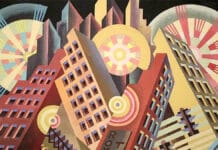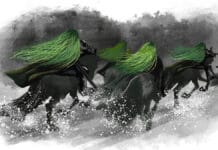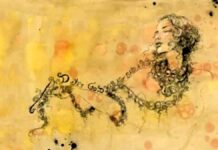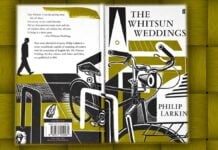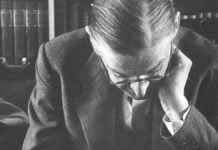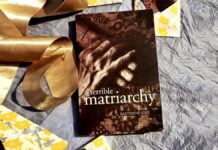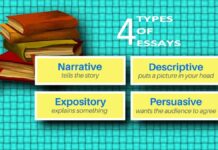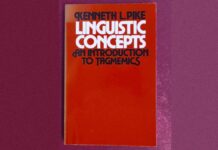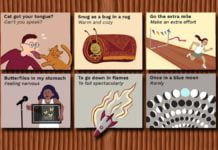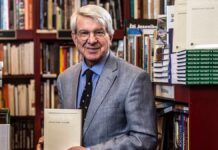The word “epiphany” comes originally from the Greek “epiphaneia,” meaning “manifestation” or “appearance.” In everyday language, it is used to describe a sudden moment of realisation or insight, where something that was previously confusing or hidden becomes strikingly clear. It’s like a flash of understanding that changes how a person sees a situation, themselves, or even life as a whole. People often describe it as a “lightbulb moment,” although in literature, the term has a more nuanced meaning.
In a religious sense, Epiphany is also the name of a Christian feast celebrated on January 6, marking the revelation of Christ to the Gentiles, symbolised by the visit of the three wise men. That’s the traditional background of the word, but in literary and philosophical contexts, the meaning has shifted and broadened to describe these sudden illuminations in human thought.
The Irish writer James Joyce is most famously associated with the literary use of epiphany. In his work, especially in Dubliners, he used the term to refer to a sudden spiritual revelation that arises from an ordinary event. For Joyce, an epiphany was not necessarily a grand, religious experience, but often something tiny—a gesture, a phrase, a glance—that sparks a more profound awareness in the character. For example, in the short story Araby, the young boy realises in a moment of crushing clarity how foolish and hopeless his romantic quest was. The moment is quiet but life-changing—it’s the very essence of an epiphany.
Epiphany as a literary device is powerful because it doesn’t rely on big plot twists or dramatic events. Instead, it highlights how human life is filled with small but meaningful awakenings. A character might suddenly understand their own flaws, or the hypocrisy of society, or the beauty of something they had ignored. These moments make the character more self-aware, and they often change the direction of the story.
Philosophically, epiphany has also been linked with psychological and existential ideas. For instance, thinkers like Carl Jung considered moments of sudden insight as breakthroughs from the unconscious mind into consciousness, a way of connecting hidden patterns. Existentialist writers, too, valued epiphany as a confrontation with truth, even if that truth is uncomfortable.
In everyday life, people use the word to describe real personal experiences. Someone might have an epiphany about their career, suddenly realising they need to change paths. Another might have an epiphany in relationships, realising they are being mistreated or that they truly love someone. These moments don’t always solve problems, but they change how people perceive things, which is often the first step towards transformation.
In literature, besides Joyce, many modernist and postmodernist writers use epiphanies to explore the hidden depths of ordinary life. Virginia Woolf, for instance, filled her novels with “moments of being,” sudden flashes when a character sees beyond the routine surface of life. T S Eliot’s poetry also captures moments of revelation that break through spiritual emptiness. These are not always positive insights—they can be disillusioning or even painful—but they remain moments of truth.
Examples
James Joyce – Araby (Dubliners)
At the end of the story, the young narrator realises that his romantic idealism about buying a gift for the girl at the bazaar was foolish. When he sees the bazaar closing down and hears the casual, disinterested voices of the shopkeepers, he suddenly understands that his journey was driven by vanity, not true love. This is a classic Joycean epiphany: an ordinary event that brings about a painful but profound self-realisation.
James Joyce – The Dead (Dubliners)
Gabriel Conroy, the protagonist, experiences a profound epiphany at the end of the story when he discovers that his wife, Gretta, once loved a young man named Michael Furey, who died for her sake. In that moment, Gabriel feels both humbled and transformed, realising the depth of human love and sacrifice compared to his own shallow existence. The snow falling “upon all the living and the dead” becomes symbolic of this revelation.
Virginia Woolf – To the Lighthouse
In Woolf’s modernist novel, characters often experience what she called “moments of being.” One striking epiphany occurs when Lily Briscoe, the painter, suddenly grasps the meaning of her painting in the final section. The act of completing her work becomes a moment of clarity and artistic fulfilment, symbolising the importance of vision, memory, and human connection.
T S Eliot – The Love Song of J Alfred Prufrock
The poem is filled with hesitation and self-doubt, but moments of epiphany appear in flashes when Prufrock realises his own paralysis and inability to act. The haunting recognition that he is “no Prince Hamlet” and the image of mermaids who will not sing to him symbolise his sudden insight into his wasted potential and alienation. It is an epiphany of despair, rather than hope.
William Wordsworth – The Prelude
In this autobiographical poem, Wordsworth frequently describes moments of sudden revelation in nature. For example, when he steals a boat as a boy and rows across a lake, he suddenly feels the overwhelming presence of a huge mountain looming before him. This experience becomes an epiphany about the power of nature and his own smallness in relation to it.
Kate Chopin – The Story of an Hour
When Mrs Mallard hears that her husband has died, she at first reacts with grief, but soon she has an epiphany: she realises that his death means freedom for her, a life where she can make her own choices. This moment of clarity, however, is cut short when her husband unexpectedly walks back in alive, leading to her sudden death. The epiphany here highlights both liberation and irony.
Marcel Proust – In Search of Lost Time
The famous Madeleine scene is a literary epiphany. When the narrator tastes a madeleine dipped in tea, he is suddenly flooded with involuntary and unexpected memories of his childhood. This moment reveals the power of memory and sensation, transforming a simple act of eating into a profound realisation about time and human experience.
F Scott Fitzgerald – The Great Gatsby
Nick Carraway, the narrator, experiences an epiphany at the end of the novel when he reflects on Gatsby’s dream and the impossibility of recapturing the past. He realises that Gatsby’s tragedy is tied to the universal human struggle against time, expressed in the closing line: “So we beat on, boats against the current, borne back ceaselessly into the past.”
These examples show that epiphanies are not always joyful —they can be moments of disillusionment, artistic fulfilment, or painful recognition. But in every case, they mark a turning point where the ordinary becomes charged with new, transformative meaning.
An epiphany is that sudden awakening of awareness which gives new meaning to experience. It can be religious, literary, psychological, or personal, but in every case it marks a turning point, where the familiar world is seen in a new and sometimes unsettling light. That’s why epiphanies remain such a significant theme in literature, philosophy, and human experience —they remind us that even the most minor incident can alter the way we perceive everything.






